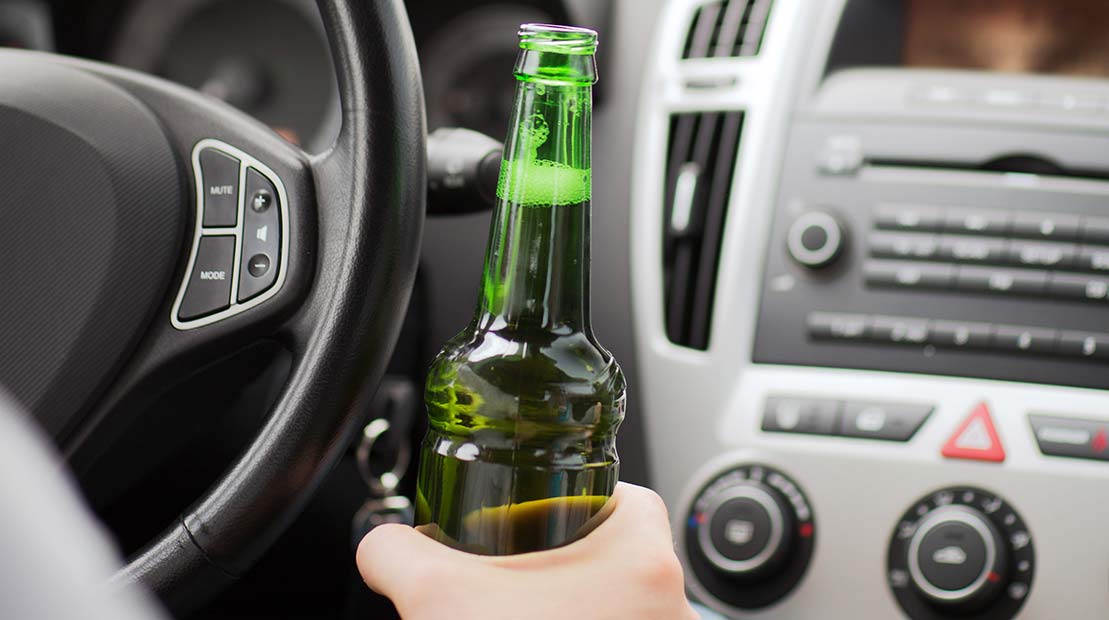What is “Allowing a Person to Operate While Intoxicated?”
Few people realize it is illegal to permit an intoxicated person to drive their car. Letting a person drive your vehicle under the influence is a misdemeanor.

Allowing an Intoxicated Person to Drive
There are many ways someone might drive another person’s vehicle while under the influence of alcohol or a controlled substance. Depending on the circumstances, allowing a person to operate a vehicle while intoxicated by drugs, alcohol, or a combination of drugs and alcohol can be a crime. Letting a person drive after drinking is insufficient, in and of itself, to establish a crime. Under the law, the vehicle owner must either know the person is intoxicated or authorize them to drive under the influence. To prove a charge in court, the prosecutor must demonstrate the following:
- operation of a vehicle,
- by a person authorized by the vehicle’s owner,
- driving on a highway or a place accessible to other vehicles,
- the operator had a Bodily Alcohol Content (BAC) of .08 or more, was high on a controlled substance, intoxicated by alcohol, or visibly impaired, and
- the owner knew the driver was under the influence or authorized them to drive high or drunk.
Penalty for Allowing a Person to Operate While Intoxicated
The potential penalties for knowingly permitting an intoxicated person to operate a vehicle depend on the circumstances. For a first offense with no extenuating circumstances, the maximum sentence is up to 93 days in jail and two (2) years of probation. Allowing a Person to Operate While Intoxicated and causing a serious injury is punishable by up to two (2) years in prison. If there is a death, the maximum increases to five (5) years.
Because Allowing a Person to Operate While Intoxicated is considered a “non-moving traffic violation,” there are no license sanctions, no points, and the offense does not appear on a driving record. The owner’s license will not get revoked, restricted, or suspended.
Defense Against Allowing an Intoxicated Person to Drive a Vehicle
In Michigan, a prosecutor must prove a defendant guilty beyond a reasonable doubt. For Allowing an Intoxicated Person to Operate a Vehicle, the prosecutor must prove the following:
(1) that the car’s owner knew the driver was intoxicated or high or
(2) that they authorized the person to drive drunk or high.
There are many innocent explanations for how someone might end up driving another person’s car while intoxicated. Suppose two people go to a restaurant and order drinks. The vehicle’s owner consumes several alcoholic beverages and is inebriated. The other person has a drink or two but believes they are safe to drive. On the way home, the police pull the car over, and the driver is determined to be over Michigan’s legal limit of .08. In this scenario, the vehicle’s owner did not knowingly permit an intoxicated person to drive and should be found “not guilty.”
In another situation, a parent permits their 21-year-old child to borrow their car to go out with friends. The parent has reason to believe their child will have a drink but has no reason to think they will drive intoxicated. A police officer stops the car and arrests their child for drunk driving. Did the parent authorize the child to drive drunk? No! This parent is not guilty of Allowing a Person to Operate While Intoxicated.
A skilled and influential OWI defense attorney could seek dismissal of the charges if the owner did not authorize or permit the person to drive or did not know the driver was intoxicated.

Plea Bargaining for Allowing a Person to Operate While Intoxicated
The attorneys with LEWIS & DICKSTEIN, P.L.L.C. have persuaded prosecutors to permit their clients to plead to Allowing a Person to Operate While Intoxicated instead of Operating While Intoxicated (OWI). A “plea bargain” is a deal with the prosecutor to reduce or dismiss charges. If a client has no viable defense to drunk or drugged driving charges, a skilled, experienced defense lawyer will negotiate the best deal possible with the prosecution.
A plea to permitting an intoxicated person to drive a car might be a beneficial option because it doesn’t result in license sanctions, doesn’t go on a driving record, and is more likely to result in a lenient sentence. In these cases, many judges will consider a sentence of just fines and costs instead of jail or probation. After five years, the person can seek an expungement of the conviction and remove it from their criminal history.
Pre-Charge Representation
Suppose someone drove your car, and the police charge them with OWI. In that case, the police might want to question you to see if you knew the driver was intoxicated or authorized them to drive under the influence of drugs or alcohol. Even if you had no idea or did not permit them to drive your car, do not talk with the police. It is essential that you retain counsel immediately so that the government does not wrongfully charge you with a crime. If you proactively retain a Pre-Charge Defense Attorney, that lawyer can advocate on your behalf, cast doubt on the charges, and demonstrate their client will vigorously defend against the allegation. A prosecutor will think twice before charging a weak case if the defendant has effective legal representation.

Your Best Defense to Allowing a Person to Operate While Intoxicated Charges
If the government accuses you of allowing a person to drive your car while under the influence, you face the possibility of a conviction, jail, probation, and more. With an aggressive, intelligent defense, it might be possible to get the charges thrown out of court! If the accused has a robust defense, a prosecutor might find it difficult to prove the vehicle’s owner knew the driver was intoxicated or permitted them to drive. That being said, most defendants are represented by budget or general practice lawyers or court-appointed attorneys who are not a credible threat to the prosecution.
The Defense Team with LEWIS & DICKSTEIN, P.L.L.C. has decades of experience successfully defending these and similar charges in courts throughout Michigan. Because of our well-known reputation for vigorously and effectively defending our clients, we are often able to get charges dismissed or reduced. Call us for a confidential case evaluation and free consultation. We will talk with you about your situation, answer your questions, and work with you to build a strong defense against Allowing a Person to Operate While Intoxicated charges.
Call us today at (248) 263-6800 for a free consultation or complete an online Request for Assistance Form. We will contact you promptly and find a way to help you.













